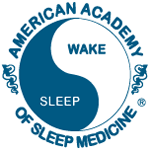 According to the U.S. Department of Homeland Security, your brain has its own music soundtrack. And this “brain music” just might help you sleep better.
According to the U.S. Department of Homeland Security, your brain has its own music soundtrack. And this “brain music” just might help you sleep better.The DHS wants to help emergency responders sleep well when they end a stressful shift. So it is studying the use of “brain music.”
How is this music recorded? The Loudoun Times-Mirror in Virginia reports that you wear a skullcap that contains EEG sensors. For about five minutes these sensors record your brain waves.
Then a computer analyzes the data. It finds the rhythm of your brain waves and transforms the unique pattern into two musical compositions. One has a fast tempo to boost alertness; the other has a slow tempo to promote relaxation.
You listen to this music at scheduled times according to your needs. It is believed that this musical feedback triggers a natural response in your brain. The fast-paced music gives you a burst of productivity and energy; the relaxing music helps you recover from a stressful situation. You can listen to a brain music sample provided by the DHS.
Does it work? It is still being tested as part of the DHS Readiness Optimization Program. But the idea has intriguing possibilities.
There is some support for using music to sleep better. A small study in 2008 showed that music therapy may reduce insomnia symptoms in older adults. Music relaxation improved their sleep and reduced their anxiety.
Another study of young adults between 19 and 28 years of age found similar results. They listened to relaxing classical music for 45 minutes at bedtime. This improved their sleep quality and reduced depressive symptoms.
There also is strong evidence that supports the use of cognitive behavioral therapy to treat insomnia. CBT is effective and has long-lasting results. Treatment methods include relaxation training and biofeedback.
“Brain music” therapy combines some elements of both music therapy and CBT. Should it be included as one of the techniques used in CBT? The evidence is not in yet.
But a sleep specialist at an AASM-accredited sleep center can determine which insomnia treatment is best for you.
Image by Michael Summers







No comments:
Post a Comment